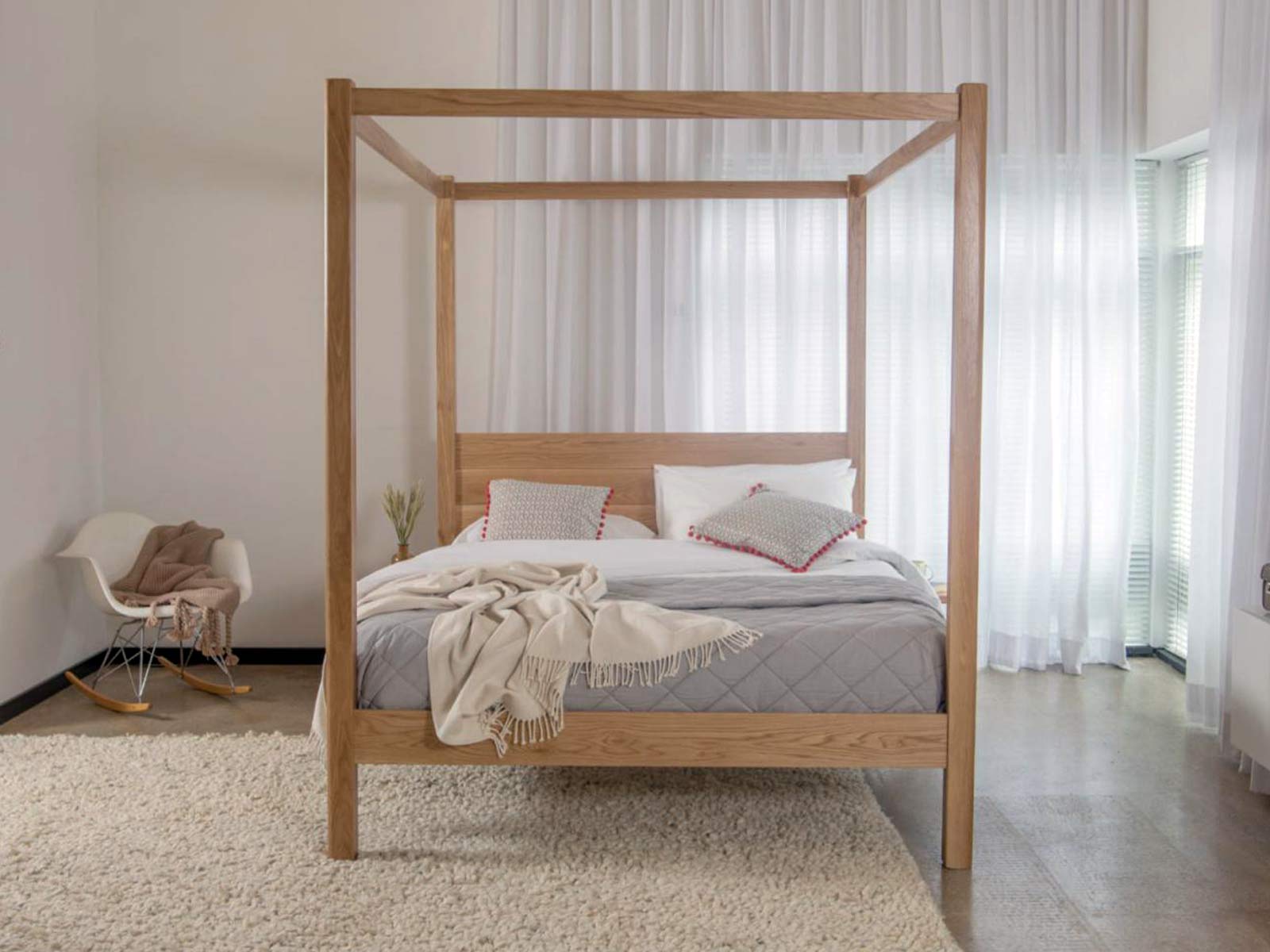
When we think about beds today, we imagine sumptuously soft mattresses, layers of crisp linens and luxuriously inviting plumped pillows. But how did we go from beds being a basic necessity to carefully handcrafted, luxurious sleep sanctuaries like the ones Get Laid Beds proudly crafts today?
From ancient Egypt to modern times, let’s dive into how sleep practices and the humble bed itself has evolved through the ages.
The ancient Egyptians were one of the most enduring and influential civilizations in human history. From constructing the awe-inspiring pyramids to inventing kohl eyeliner and even toothpaste, they were ahead of their time in many areas, including their beds.
Pharaohs slept on lavish beds consisting of rectangular frames that were often raised to evade unwanted creepy crawlies, and slightly slanted at an angle, with a footbed so the occupant did not fall out. Their sleeping quarters often included elaborate bedding, decorated linens, and even headrests made of carved wood or stone. There were no soft pillows here—these headrests propped up the neck to avoid disheveling their regal hairstyles and, possibly, to ward off bad dreams.
Meanwhile, everyday Egyptians made do with simple wooden frames or reed mats on the floor – think minimalism before it was cool.
Fast forward to the Roman Empire, where things got fancier. The Romans had a serious love for luxury, and their beds reflected it. Mattresses stuffed with hay, feathers, or wool? Check. Ornately carved bed frames with bronze or silver accents? Double check. They transformed the humble bed from a simple place to sleep into a sumptuous work of art.
Their sleep philosophy? “Work hard, sleep harder.” Romans did indeed embrace the siesta culture and enjoying a leisurely mid-afternoon nap was their way of savouring life.
In the Middle Ages, sleeping arrangements took a weird turn but in all fairness, the Middle Ages were not exactly the most relaxing of times. People had genuine concerns about real dangers like thieves, fire, bad weather, war, famine and even the plague, which didn’t exactly make it easy to drift off into a peaceful slumber.
Beds were large, sometimes gigantic, and made of wooden frames draped with thick curtains to keep out drafts—and, possibly, nosy neighbours. If you were particularly fortunate, you might find yourself in the Great Bed of Ware, which could accommodate up to eight people. Yes, bed-sharing was the norm, but not quite in the way we think of it today. Both families and guests would pile in together for the night, creating a rather, well, cosy atmosphere.
As for the mattresses, they were typically stuffed with straw, giving your sleep a rustic feel—think barn vibes! Of course, that rustic charm came with a trade-off: a distinct lack of peace and quiet. So while it was a snug setup, sleeping in the Middle Ages was definitely more about close quarters than tranquillity!
As we head into the Renaissance, beds started to become a status symbol. This is where we get the iconic four-poster bed, draped with velvet or silk curtains, because who wouldn’t want to sleep like royalty? While mattresses were still often stuffed with straw, some affluent individuals opted for feather-filled upgrades. Talk about a fancy upgrade!
The true star of this era was the canopy bed—a sumptuous private cocoon for lords, ladies, and anyone willing to spend a pretty penny. Finally, privacy was within reach… unless, of course, you had servants sleeping in the same room (yep, that was absolutely a thing).
Now, let’s fast forward to the 19th century, where things really started to change. Thanks to the Industrial Revolution, the mass production of mattresses became a reality. Say hello to the coil spring mattress, the ancestor of the pocket springs we know and love today. Goodbye straw-stuffed sacks, and hello to that delightful bounce!
With more people able to afford actual mattresses, sleep started to become, well, comfortable. Beds weren’t just functional anymore; they were something to look forward to at the end of a long day.
The 20th century brought a wave of specialisation to beds. Memory foam, invented by NASA (thanks, science!), transformed the humble mattress into an engineering marvel. From the groovy waterbeds of the ‘70s to adjustable beds that cater to every sleeping position, sleep innovation was on the rise.
Bed sizes also expanded dramatically. With options like queen-size, king-size, and California king, it felt like everyone wanted a bed spacious enough to accommodate a full-on sleep extravaganza!
Today, sleep has evolved into a science. With apps to track our REM cycles and gadgets to stop us from snoring, we’ve gone full circle from simple slabs to high-tech sleep havens.
Beds are now designed with aesthetics and sustainability in mind (hint: check out how Get Laid Beds celebrated planting 100,000 trees in collaboration with the International Tree Foundation). From minimalist Scandinavian designs to handcrafted solid wood frames, modern beds are as much about style as they are about function.
We’ve also learned the importance of a good night’s sleep thanks to dedicated sleep scientists, and it’s no longer deemed a luxury but an absolute necessity. Now, we know that getting those 7–9 hours a night isn’t just about being well-rested; it’s essential for our health and mood because no one likes potentially waking up on the “wrong side of the bed!”
As we look ahead, who knows what the future of beds will hold? Maybe we’ll be sleeping on beds that adjust to our mood or come equipped with built-in massage features. One thing’s for sure: that humble piece of furniture has come a long way. From pharaohs on stilts to pocket-sprung perfection, we’ve seemingly achieved what our ancestors dreamed of—a perfect night’s sleep.
So, when you lie down tonight on your handcrafted wooden bed, take a moment to appreciate the journey your sleep space has taken. And give thanks for memory foam - it’s a game changer!

WE VALUE YOUR PRIVACY
We use cookies to enhance your browsing experience, serve personalised ads or content, and analyse the traffic with 3rd party services. By clicking ‘Accept’, you consent to our use of cookies, visit our Privacy Policy and our Cookie Policy for more info.
Please select one of the delivery countries below or navigate to our UK website for UK delivery options.
Note: International shipping prices are charged per bed rather than per order. This is due to the bulky nature and weight of these products.